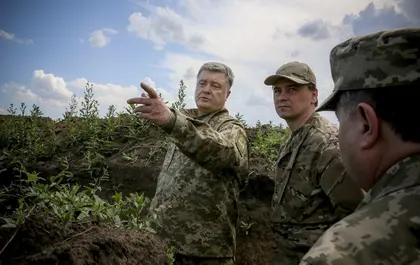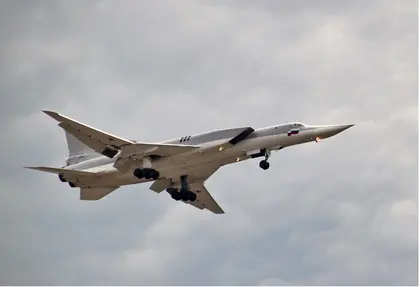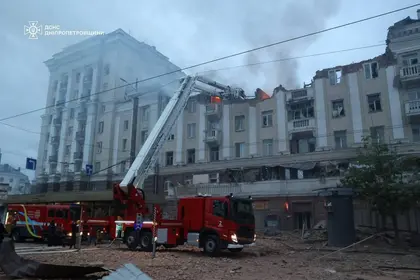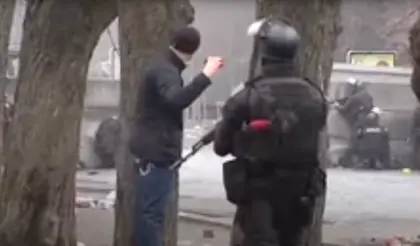Incumbent President Poroshenko might have been trounced nationally, but as of noon April 22, with 98 percent of the vote counted, he had won most of the votes of soldiers in the war zone.
But, as in the first round of voting on March 31, the win was a close one.
According to data published by Ukraine’s Central Electoral Commission, Poroshenko won in 46 out of a total of 79 special polling stations for military personnel in the Donetsk and Luhansk oblasts, gaining a total of at least 17,379 votes, or 48.7 percent, the Kyiv Post estimates.
His rival, the victorious candidate and now President-elect Volodymyr Zelenskiy won at least 16,489 voters, or 46.2 percent, and was the victor in 33 military polling stations.
The margin between the two was 890 votes.
Just over 35,000 soldiers and officers in the Donbas voted in the runoff elections.
The data shows few stations gave overwhelming support to either candidate. Poroshenko in particular was supported by almost all special military voting stations in electoral district No. 59, which covers territories just west of the Russian-occupied city of Donetsk.
However, large numbers of ballots were spoiled in the war zone: Dozens were probably intentionally destroyed by military voters at each polling stations in what was likely a substitute for “vote against all” option, not currently envisaged in the country’s electoral legislation.
The numbers of spoiled ballots were particularly high at polling stations near the front-line village of Novoluhanske (247 ballots, or 34.7 percent of the total ) and in the city of Kurakhove west of Donetsk (101 ballots, or 11.6 percent of the total.)
Military voters spoiled up to 5 percent of their ballots. Nationally the percentage was 2.31.
At the first round on March 31 the incumbent Commander-in-Chief also won narrowly, with 37.6 percent of the vote.
Zelenskiy at that time gained 36.4 percent of votes, short of Poroshenko’s total only by about 400 votes, which was seen as a major setback for Poroshenko. The president had courted the military vote intensely during his campaign and had expected them to support him strongly.
In the five years since taking power in the summer 2014 at the peak of Russia’s intervention in the Donbas, Poroshenko has highlighted the recovery and buildup of the military under his leadership. Ukraine’s Armed Forces, neglected and underfunded for decades prior to 2014, have under Poroshenko enjoyed record-high budgets, which have skyrocketed from $69 million in 2013 to $3.7 billion in 2019.
Other than that, the total number of active duty service personnel in the Armed Forces was increased to nearly 250,000 — the limit imposed by the national legislation — and a corps of nearly 180,000 reserve troops was also created.
Poroshenko and his entourage claim the credit for the resurrection of the Ukrainian military, previously hollowed out by post-Soviet cuts and sales of its hardware abroad. In the past few years, Poroshenko has publicly claimed Ukraine now has “one of the most powerful armies in Europe.”
Under Poroshenko, the whole defense and security sector commenced a program of modernization with the goal of gaining full compatibility with NATO requirements by late 2020 and then to seek full membership of the 29-nation defense alliance.
Poroshenko has exploited the image of a strong wartime leader at the start of the presidential electoral campaign of 2018-2019, with widespread media coverage of him wearing camouflage among soldiers in full combat gear or next to military vehicles, including in the Donbas war zone.
Poroshenko’s main campaign slogan “Army! Language! Faith!” put the military first, ahead of the other emotive issues of the status of the Ukrainian language and the regaining of the independence of the Ukrainian Orthodox Church from Moscow.
The Armed Forces command, headed by Chief of General Staff Viktor Muzhenko, Poroshenko’s loyal ally, provided the president with broad support in public. General Muzhenko personally endorsed Poroshenko on Jan. 30, urging military personnel to reelect their current commander-in-chief.
“Don’t believe those who promise easy answers, a swift peace… They are only wrapping the war in a parcel and sending it to our children and grandchildren. It is we who must see this to the end,” Muzhenko said.
The president also hoped to gain popularity in the military through the occasional increases in their monthly pay. On March 2, less than a month before Election Day, Poroshenko, while visiting the Donbas war zone, announced an increase in the bonus payments to front-line soldiers from Hr 10,000 ($370) to Hr 12,000 ($440) per month. Those deployed to the second line of defense would get an additional Hr 5,500 ($200), up from Hr 4,500 ($165), the president said.
Still, the president has faced constant criticism during his term in office over failures to reform Ukraine’s Soviet-style military, and the lack of career prospects for soldiers and officers, as well as very poor conditions of service and social benefits for personnel and their families.
Unresolved social issues, according to the Defense Ministry, led to nearly 30,000 contract soldiers, including those with a huge amount of valuable combat experience, leaving the military in 2018 alone for a better life out of the army.
And Poroshenko and the top military command still face severe criticism over their alleged failure to ensure there was a proper investigation into the disastrous battles of Ilovaisk and Debaltseve, in which hundreds of Ukrainian fighters were slaughtered by Russian-led forces, including Russian regular army units, in 2014-2015.
Critics believe the military disasters were partially due to the incompetence of Ukraine’s top commanding officers, none of whom have been held to account. Other than that, Poroshenko has been heavily criticized for signing the Minsk Agreements of August 2014 and February 2015, which have effectively frozen the war into a grueling, low-level trench conflict along a 450-kilometer front line — with no end in sight.
The dark legacy of 2014-2015 has made Poroshenko generally unpopular among old campaigners of the early days of Russia’s war, especially among the former fighters of the numerous volunteer battalions set up to help defend the country at a time when the regular army could field no more than 6,000 troops.
But the worst damage to Poroshenko’s popularity was probably dealt by numerous corruption scandals in defense sector, time after time involving the president’s close entourage and appointees, but with no high-profile officials ever going to jail.
In particular, the Deputy Defense Minister Lieutenant General Oleh Pavlovskiy was arrested by Ukraine’s National Anti-Corruption Bureau Agency on a charge of embezzling Hr 149 million ($5.4 million) of budget funds allocated for procurement of fuel for the Armed Forces. Yet just two weeks later a court released the general, and the case came to nothing.
In March, just days before Election Day, Poroshenko took a heavy blow as Bihus.Info, an award-winning TV investigative journalism project, aired allegations that top defense and security officials from the president’s closest circle were involved in large-scale embezzlement, smuggling used or obsolete military hardware from Russia and selling it to Ukrainian defense companies at inflated prices.
The scheme particularly involved Oleh Hladkovskiy, Poroshenko’s long-time friend and business-partner, whom he had appointed as a deputy head of Ukraine’s National Security and Defense Council.
The ensuing scandal led to Hladkovskiy’s dismissal by Poroshenko, but so far none of the scheme’s alleged participants have been officially charged.
You can also highlight the text and press Ctrl + Enter







Comments (0)